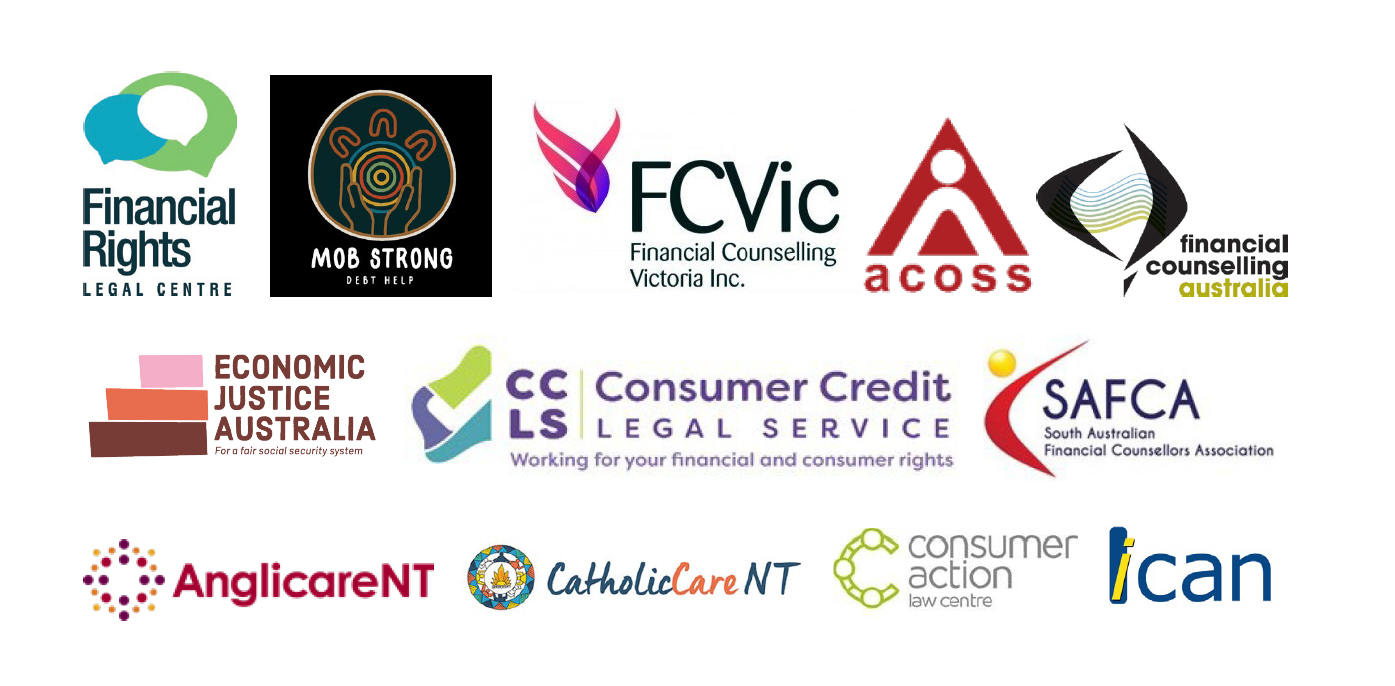First Nations and other consumer advocates have welcomed the extension of ASIC’s interim Stop Order on Coral Coast Distributors (Cairns) Ptd Ltd trading as Urban Rampage (Urban Rampage) retail stores, where customers enter agreements to pay for goods on credit through Centrepay deductions.
The original stop order was imposed because ASIC received complaints about Urban Rampage’s targeting of low-income consumers into Centrepay arrangements, which had caused financial distress and harm. ASIC’s media release said it had received numerous complaints of Urban Rampage customers experiencing financial hardship and presenting for emergency relief after entering into Centrepay arrangements at its stores.
The extension has been received well by First Nations led service Mob Strong Debt Help, who are seeking broader reform to address the ongoing misuse of Centrepay by exploitative businesses.
“The fact ASIC has extended, rather than removed the stop order quickly as it has done in other cases suggests ASIC is still looking carefully at this business while preventing further harm” said First Nations man Mark Holden, Mob Strong Senior Solicitor & Policy Advocate.
Centrepay-approved payments are deducted before money goes into the consumer’s bank account. It guarantees payment to that business from a person’s Centrelink income when they are paid, before someone can buy basic necessities like food.
“The people we assist are doing their best to manage a finite amount of income. Their Centrelink income is going to multiple Centrepay deductions – leaving them without enough money for food for their families. Centrepay has become a vehicle for financial abuse” said First nations woman Bettina Cooper, Mob Strong Financial Counsellor & Strategy Lead.
Mob Strong staff have witnessed First Nations customers being subject to high pressure sales tactics to buy larger amounts of low value, high priced goods in Urban Rampage stores, to a targeted dollar amount. These kinds of sales tactics leave First Nations people seeking emergency relief and engaging with financial counsellors for assistance.
“When provided credit though Centrepay, people believe that they are signing with a business that has the tick of approval of Centrepay. But with little or no affordability checks, they are often left financially overcommitted” Ms Cooper added.
“We commend ASIC listening to First Nations and other consumer advocates and acting in a timely manner. Centrepay has been largely inactive when it comes to identifying and removing non-compliant businesses from Centrepay – and enough is enough” she said.
The current process for a customer to complain about a company on Centrepay is challenging for those living in Remote communities. This is exacerbated by additional barriers like low digital inclusion, and English being the second or third language, meaning a complaint often needs the support of a financial counsellor or other advocate. Advocates report that making a complaint to Urban Rampage is not a smooth process, made more difficult by Urban Rampage not being a member of a formal external dispute resolution service - despite being able to provide credit through Centrepay.
Mr Holden continued: “We suspect that some businesses are financially motivated to take advantage of Centrepay to deduct as much Centrelink as possible as there are no limitations, and they get the money before the consumer. There are now over 15,000 businesses using Centrepay. Mob Strong and other consumer advocates have been fighting for Centrepay reforms to fix this system and stop exploitation by businesses but these reforms need to be faster”.
Mob Strong have been informed that Urban Rampage provides First Nations customers on Centrelink payments with up to $1,000 of credit through Centrepay, and state that repayment of credit is required over 5 set payments. The high risk is that a customer will be in financial hardship over a 10-week period, as each fortnight their Centrelink payments are drained with high deductions to repay the credit provided by Centrepay to Urban Rampage. We observed no evidence of due diligence to check the payments were affordable for the First Nations customers being sold goods.
Ms Cooper added: “We are pleased to see regulators looking closely at businesses who are targeting First Nations customers. It is frustrating when government shies away from intervening where there is potential harm. Advocates warned for years about the Aboriginal Community Benefit Fund/Youpla exploiting Centrepay while misrepresenting itself as a First Nations business, before it went bust taking millions of First Nations dollars with it, causing cultural and financial harm. Only years later have we now started to address the trauma to community by the government creating an Enduring Resolution and giving people back some of the money they lost to help cover sorry business”.
“The priority here is to prevent any further financial exploitation and community harm. Getting onto Centrepay is meant to help vulnerable consumers and has a higher standard of care, requirement and monitoring. This is because these consumers are being asked to give up their financial safety net for an essential service when it could mean they miss a meal. We need to see much stronger compliance where there is evidence of misconduct”, concluded Mr Holden.
NOTE: Mob Strong is working with a range of organisations to improve Centrepay, including signatories to this statement.
Free, independent advice is available from Mob Strong Debt Help on 1800 808 488, and the National Debt Helpline on 1800 007 007. More information for First Nations consumers is available from MOb Strong’s webpage: Mob Strong Debt Help (financialrights.org.au)
Contact
For further information contact media@financialrights.org.au


